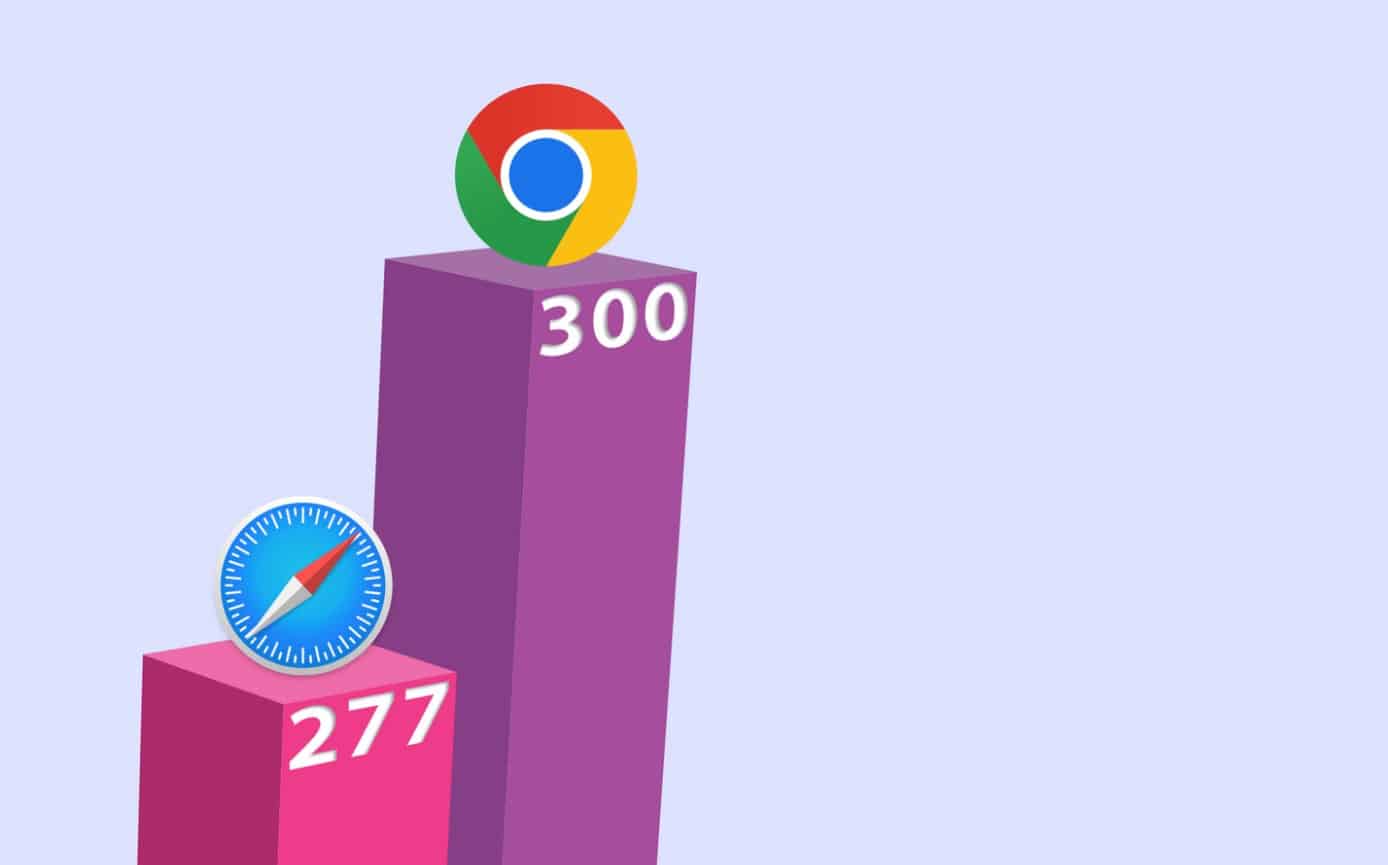Web browsers are famously complicated pieces of software with plenty of very demanding features. In turn, browser developers take performance very seriously, which has led to one of the most competitive (friendly) rivalries in all of tech. Thanks to a number of optimizations to Chrome’s code, and even the way code is compiled, it has set a new record in Apple’s own browser benchmark test and claimed the crown from Safari as the fastest browser on macOS. But this isn’t just a win on Apple’s computers, the improvements can be felt on almost all versions of Chrome.
Apple’s Speedometer benchmark launched in 2014 to measure performance based on simulated real-world user interaction, and has since become a standard for measuring performance in both browsers and hardware. Now in version 2.0 (released in 2018), the highest widely reported score has been 277, held by Safari on a MacBook Pro w/ M1 Max. Perhaps notably, the founder of Orion browser, claims it has hit 289 with the M1 Pro. However, as of the M99 release of Google Chrome, the coveted 300 mark has finally been cracked.
Google attributes the new high score to a short list of changes, particularly enabling ThinLTO to gain many small advantages from compiler optimizations, giving Chrome a boost in speed of about 7% over Safari. That lead grows to 15% in graphical performance with the implementation of a pass-through decoder and out-of-process (OOP) rasterization.
Older improvements also have a significant effect on bolstering Chrome’s overall performance. Google credits the new V8 Sparkplug compiler in M91, introduced in early 2021, for speeding up JavaScript operation by 23%. M1 Macs also gained a particularly influential benefit from the implementation of short builtin calls.
This achievement on the Speedometer 2.0 benchmark may technically rely on Apple’s hardware to reach a new high score, but the numerous improvements to Chrome’s codebase can be felt across all operating systems and hardware platforms. In addition to the improvements already mentioned, Chrome on Android has been loading pages 15% faster due to reprioritizing navigation on the UI thread and it launches 13% faster with last year’s addition of freeze-dried tabs. Likewise, Chrome on Windows recently gained a launch speed boost from changing the way it treats windows that are obstructed by other windows.
While it may not always be possible to recognize that Chrome is launching faster or running more efficiently, the differences are at least clear in tests. As our browsers become faster, it enables web applications to grow in complexity and enable more powerful features that wouldn’t have been reasonable to run in a browser several years ago.

